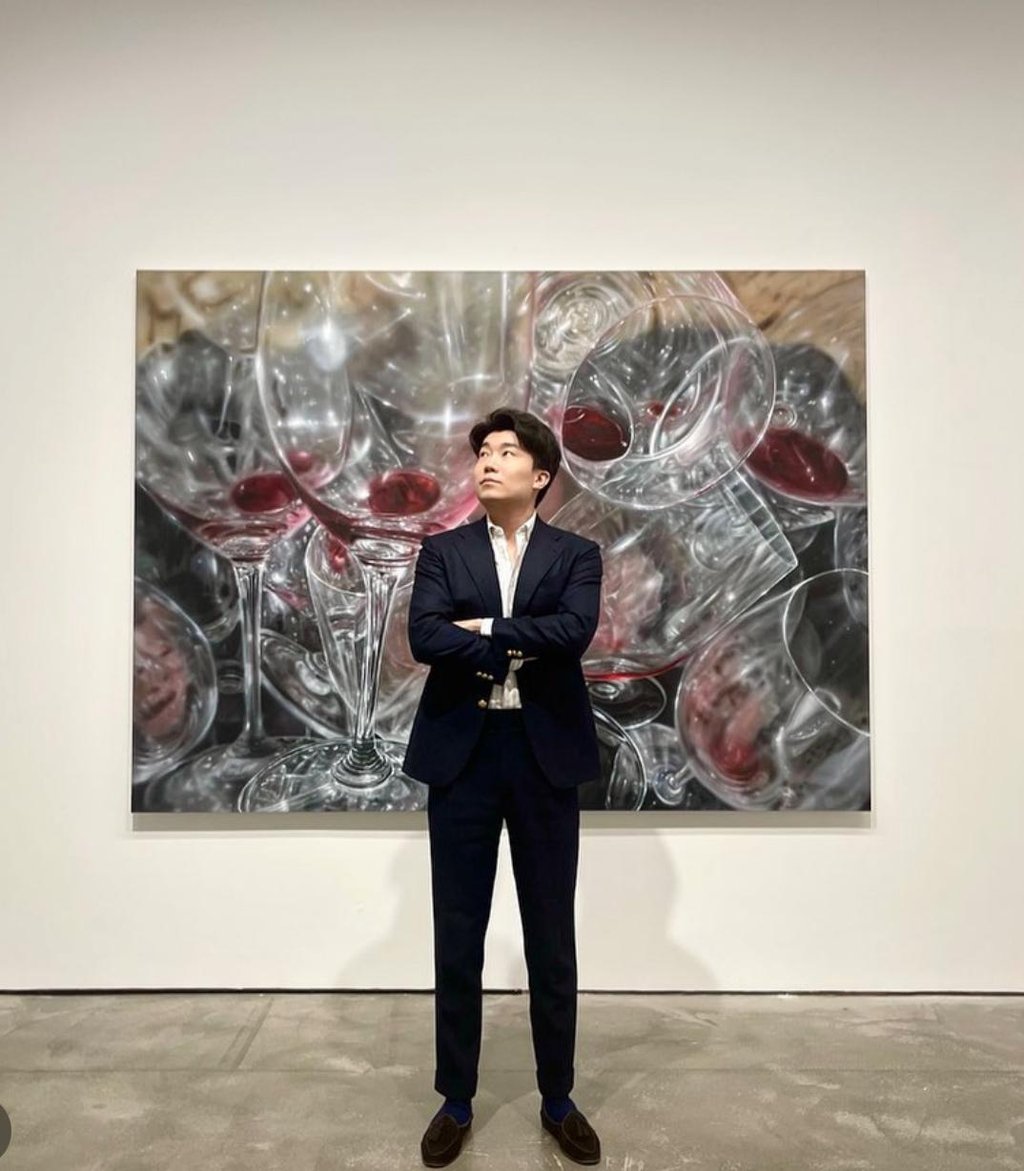Michael Xufu Huang
The collector as a living ecosystem. Between Taoist flow and curatorial vision, he turns art into a field of relations—ephemeral, radical, and ever-becoming.
COLLECTORS OF MEANING: WHEN ART BECOMES A RESPONSIBILITY
Charlotte Madeleine CASTELLI
7/28/20253 min read


On Fluidity, Non-Possession, and the Art of Being With
In the vast constellation of contemporary art, the figure of the living collector has often been read through the lens of Western accumulation — as a custodian of capital, a name behind the wall label, a force of validation. Yet in my curatorial practice, I seek different gravitational pulls. I gravitate toward those whose presence within the art world does not impose, but allows; who do not collect to possess, but to accompany; who mirror, in their gestures, the rhythms of the natural world — impermanent, relational, attuned.
Michael Xufu Huang is, to me, one such figure. Raised in Beijing and now working fluidly between China, Europe, and the United States, he is more than a collector. He is a catalyst, a host of ecosystems in motion. His work with M WOODS Museum and X Museum is not the construction of an archive, but the cultivation of an environment. What he collects is not static matter, but potential.
In the East Asian philosophical tradition — which deeply informs my own approach to curating and commissioning — emptiness (wu) is not the absence of content, but the condition of possibility. Wu wei, or non-action, does not mean passivity; it means alignment with the flow of things. To collect in this sense is not to freeze or own, but to engage, to be present, to let form arise and dissolve in its own time.
Michael’s collecting reflects this ethos. Whether acquiring digital works, installations, or performance-based practices, he does not fix things in place — he allows them to move. His spaces are in flux, his programming responsive. He embodies a form of quiet orchestration: active when necessary, withdrawn when not. A practice of attunement rather than intervention.
In my own curatorial projects — particularly within the framework of Future, a living museum and narrative platform I helped shape — I’ve long questioned the logic of ownership in art. I see collecting not as an act of extraction, but as a way of being-with: with artists, with publics, with temporalities.
This is where Michael’s path resonates most with mine. His institutions are not temples to the self, but collective laboratories. They invite error, uncertainty, and transformation. His support of artists like Lu Yang, Cheng Ran, Amalia Ulman, and Korakrit Arunanondchai reflects a desire to accompany artists in their becoming, rather than instrumentalize them for prestige. He understands that true collecting is not curating objects, but hosting transitions.
The X Museum in Chaoyang, Beijing, which Huang co-founded in 2020, is perhaps the clearest embodiment of this philosophy. It does not seek to monumentalize contemporary art. Rather, it listens to it — its hesitations, its distortions, its tectonic shifts. The space functions more like a breathing organism than a container. It is guided by intuition, curiosity, and critical sensitivity to cultural metabolism.
This is an approach I deeply share. In our projects at Future, we too aim to build infrastructures of care rather than permanence. We do not wish to freeze the avant-garde in place. We wish to tune into its rhythms, building support structures that are open, adaptive, and attentive to context.
Michael Xufu Huang teaches us something vital: that collecting can be a relational, impermanent, and ultimately philosophical practice. That to collect is not always to own, but to make possible. That generosity lies not in accumulation, but in opening space for others to move.
In our contemporary age — where visibility often precedes depth, and capital overshadows care — his presence signals something else: a return to balance, to subtlety, to quiet intensity. The collector, in this light, becomes not a figure of power, but a field of potential — a space in which forms, ideas, and encounters can take root.
This is the kind of collezionismo I choose to engage with. One that echoes the Tao. One that believes not in control, but in flow. One that recognises that art — like life — unfolds not in the holding, but in the letting go.
© Charlotte Madeleine Castelli | All rights reserved
